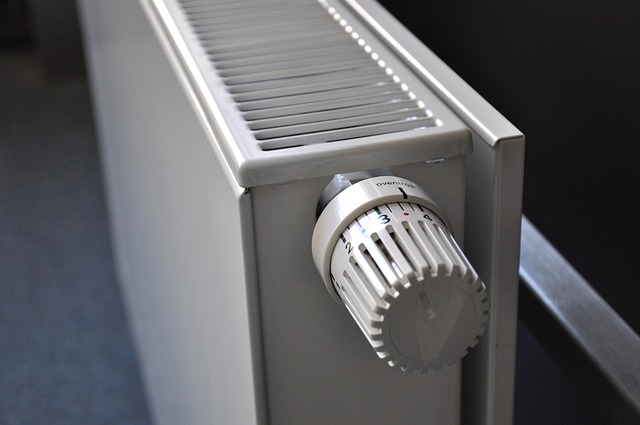What To Know About House Heating Systems In 2025 - A Complete Guide
As 2025 approaches, home heating technology continues to evolve with more efficient, environmentally friendly, and cost-effective options becoming available to homeowners. This guide provides essential information about house heating systems in 2025, covering traditional furnaces and emerging green technologies. It outlines various options, their costs, benefits, and considerations to support informed decisions about maintaining a comfortable home throughout the year.

What To Know About House Heating Systems In 2025 - A Complete Guide
Home heating technology continues to evolve rapidly, with 2025 bringing new efficiency standards, smart integration capabilities, and environmental considerations to the forefront. Whether you’re building a new home, replacing an aging system, or exploring upgrade options, understanding today’s heating landscape is essential for making informed decisions that will serve your household for years to come.
Types of House Heating Systems In 2025
Modern heating systems fall into several main categories, each with distinct characteristics and applications. Gas furnaces remain popular due to their reliability and relatively low operating costs, while electric heat pumps have gained significant traction thanks to improved cold-weather performance and environmental benefits. Radiant floor heating systems offer luxury comfort and energy efficiency, particularly in new construction projects.
Oil heating systems, while less common in new installations, continue to serve many existing homes effectively. Geothermal heat pumps represent the premium efficiency option, utilizing stable ground temperatures to provide both heating and cooling. Hybrid systems that combine multiple heating sources are becoming increasingly sophisticated, automatically switching between energy sources based on outdoor temperatures and utility rates.
House Heating System Prices In 2025
Heating system costs vary significantly based on system type, home size, installation complexity, and regional factors. Understanding these price ranges helps homeowners budget appropriately and compare options effectively.
| System Type | Provider/Brand | Cost Estimation |
|---|---|---|
| Gas Furnace | Carrier, Trane, Lennox | $3,000 - $8,000 |
| Electric Heat Pump | Mitsubishi, Daikin, Rheem | $4,500 - $12,000 |
| Geothermal System | WaterFurnace, ClimateMaster | $15,000 - $35,000 |
| Radiant Floor Heating | Warmboard, Uponor, Rehau | $6,000 - $20,000 |
| Oil Furnace | Buderus, Weil-McLain | $4,000 - $9,000 |
| Hybrid System | Honeywell, Goodman | $8,000 - $15,000 |
Prices, rates, or cost estimates mentioned in this article are based on the latest available information but may change over time. Independent research is advised before making financial decisions.
Tips to Choosing the Right House Heating Systems
Selecting an appropriate heating system requires careful consideration of multiple factors beyond initial cost. Climate zone plays a crucial role, as systems that excel in moderate climates may struggle in extreme cold conditions. Home size, insulation quality, and existing ductwork all influence system requirements and installation complexity.
Energy costs in your area significantly impact long-term operating expenses, making it essential to compare natural gas, electricity, and oil prices when evaluating options. Professional load calculations ensure proper system sizing, preventing inefficiency from oversized units or inadequate heating from undersized systems. Consider future needs, including potential home additions or changing family circumstances that might affect heating requirements.
Pros and Cons of Getting a House Heating System
Modern heating systems offer substantial advantages over older technology, including improved energy efficiency that can reduce utility bills by 20-40% compared to systems over 15 years old. Smart thermostats and zoned heating capabilities provide precise temperature control and additional energy savings. Many new systems qualify for federal tax credits and local utility rebates, offsetting initial investment costs.
However, heating system installation involves significant upfront costs and potential disruption to daily routines during installation. Some high-efficiency systems require specialized maintenance that may cost more than traditional service calls. Regional availability of fuel sources and service technicians can limit system options in certain areas. Additionally, rapidly evolving technology means today’s cutting-edge systems may become outdated more quickly than previous generations.
Future Trends in Home Heating for 2025 and Beyond
The heating industry is experiencing rapid transformation driven by environmental regulations, technological advancement, and changing consumer preferences. Heat pump technology continues improving cold-weather performance, making these systems viable in previously unsuitable climates. Smart home integration is becoming standard, with systems that learn household patterns and adjust automatically for optimal comfort and efficiency.
Renewable energy integration represents a major trend, with solar-powered heat pumps and biomass systems gaining market share. Hydrogen-powered heating systems are emerging in pilot programs, potentially offering carbon-neutral heating solutions. Building codes increasingly favor high-efficiency systems, and some regions are implementing restrictions on fossil fuel heating in new construction. These trends suggest that homeowners investing in heating systems today should consider long-term compatibility with evolving energy standards and environmental regulations.
Modern heating systems represent a significant investment in home comfort, energy efficiency, and environmental responsibility. By understanding available options, costs, and emerging trends, homeowners can make informed decisions that provide reliable warmth while minimizing environmental impact and operating costs. Professional consultation remains valuable for navigating complex system requirements and ensuring optimal performance for specific home conditions.




